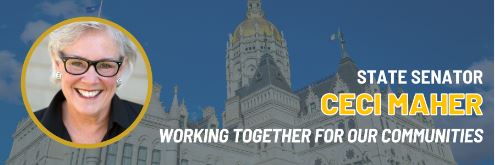Senators Looney & Duff Applaud West Coast Health Alliance, Call for Northeastern States to Follow Suit
Today, Senate President Martin M. Looney (D-New Haven) and Senate Majority Leader Bob Duff (D-Norwalk) applauded the announcement of the West Coast Health Alliance. The Alliance is a collaborative effort between the governors of California, Oregon, and Washington to provide region-specific health and vaccination recommendations to residents.
This announcement follows growing accusations of politicization at federal health institutions, including the Centers for Disease Control. Critics have pointed to Health and Human Services Secretary Robert F. Kennedy Jr., who operated an anti-vaccine organization for profit for several years before being named to lead major American health institutions. Kennedy recently fired CDC Director Susan Moranez, who said she was ousted for disagreeing with his changes to vaccine recommendations. Several other department leaders resigned in response, and more than a thousand current and former staffers have protested his leadership in recent weeks.
Kennedy replaced Moranez with Jim O’Neill, a former presidential speechwriter who has no experience in medicine or science.
The West Coast Health Alliance also comes amid reports that Connecticut was one of eight states to send public health officials to a recent meeting about forming their own regional alliance. Such an effort would allow states to make health recommendations and guidance directly to the public. Sens. Looney and Duff encouraged Connecticut officials to pursue these partnerships.
“With COVID vaccines restricted to the public for the first time, and guidelines for their use suddenly changing more than four years after they were first used to save hundreds of thousands of lives, the government has gone from heavily encouraging vaccination to sowing distrust in it,” said Sen. Looney. “Those who can remember the scourges of polio, measles, and other illnesses that plagued, sickened, and killed Americans before vaccines know this is a dangerous direction. It follows conspiracy theories with no evidence over years of trusted, published data. Connecticut should turn away from that path. A northeastern collaborative effort to provide residents with science-based advice and recommendations can make sure our state is focused on health above narrative and reality over propaganda.”
“It’s odd that Robert F. Kennedy, Jr. opposes vaccines when his own Centers for Disease Control estimated this year that COVID vaccines saved more than 5,000 lives, prevented 13,000 ICU visits, and averted 68,000 hospitalizations just in the winter of 2024. The COVID vaccine has saved 2.5 million lives across the globe since its introduction,” said Sen. Duff. “When his own staff is resigning and walking out of offices to protest his actions, it’s clear we can no longer fully trust the CDC, FDA, or HHS. It’s with that foresight that I commend the West Coast Health Alliance and call upon Connecticut and our allies in the Northeast to follow suit. The people of New England and the Northeast, home to some of the best colleges and health care in the nation, deserve confidence when researching the best health decisions for themselves.”
The West Coast Health Alliance will coordinate health guidance across its three states. It will focus on evidence-based immunization recommendations and provide residents with consistent and credible health information.
According to media reports, the governors of California, Oregon, and Washington cited the politicization of the CDC and the mass firing of doctors and scientists as reasons for the Alliance. The HHS responded with a politicized statement attacking Democrats.
On the same day the Alliance was announced, Florida’s surgeon general declared that the Republican-led state would move to end all vaccine requirements for children.


